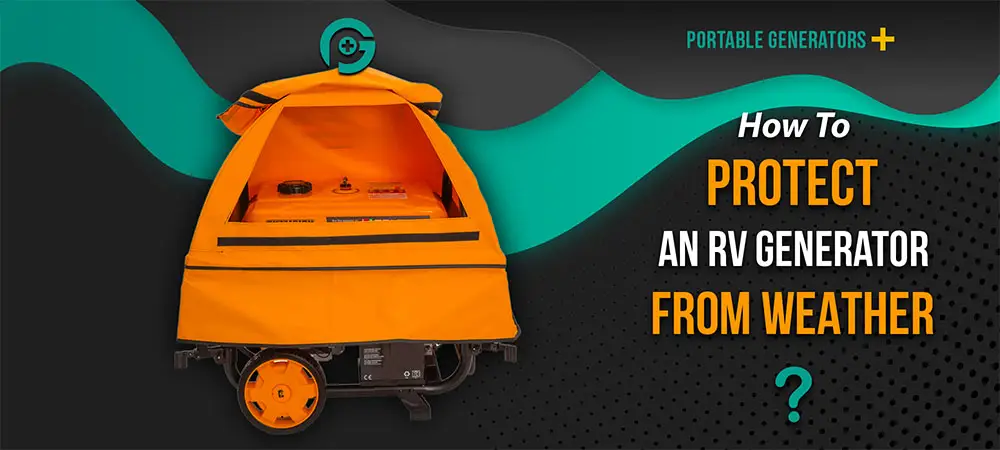How To Protect RV Generator From Weather? - Quick Answer...
Naturally, the solution is to shield your generator with the appropriate rain shelter or canopy when it’s in use. Covers like the GenTent generator canopy are tailor-made for specific devices, ensuring uninterrupted power, even in the most extreme weather.
Introduction
Question: How to protect rv generator from weather?
If you’re an avid RVer, you know the importance of a reliable generator for powering your adventures on the road. However, when it comes to protecting your precious RV generator from unpredictable weather conditions, you may find yourself in a bit of a conundrum.
Fear not, for in this article, we will guide you through the essential tips and tricks to ensure your generator stays safe and functional, come rain or shine. From effective shelter solutions to preventative maintenance techniques, you’ll soon be equipped with the knowledge to shield your RV generator from the wrath of the elements.
So, let’s dive in and learn how to protect your invaluable power source from the unforgiving hands of weather challenges.
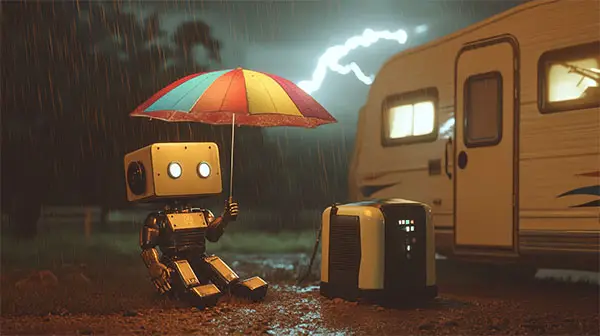
NOTE: We know the question “How to protect rv generator from weather?” is written in an awkward way, but it is the way this question is most often asked. So as to appear in the search results, we need to quote the question as it is asked. Cheers.
Location
Choose a Sheltered Area
When selecting a location for your RV generator, it is important to choose a sheltered area. This will help protect the generator from harsh weather conditions such as rain, snow, and excessive sunlight. Look for a spot that is protected by an overhang, such as a carport or awning, or consider placing the generator in a specially designed generator enclosure.
Consider Surrounding Elements
In addition to finding a sheltered area, it is important to consider the surrounding elements. Avoid placing the generator near trees or shrubs that could potentially fall onto the unit during severe weather.
Take into account any possible sources of water that could lead to flooding, and ensure that the chosen area is well-drained.
Properly Position the Generator
Once you have selected a sheltered area, make sure to properly position the generator. Place it on a flat, level surface to ensure stability. Avoid placing the generator directly on the ground, as this can lead to moisture buildup and potential damage.
Generator Cover
Purchase a Weatherproof Cover
Investing in a weatherproof cover is essential for protecting your RV generator from the elements. Look for a cover specifically designed for generators that are made from durable, waterproof material. This will provide an extra layer of protection against rain, snow, and UV rays.
Ensure Proper Fit
When purchasing a generator cover, make sure to choose one that fits your specific generator model. A properly fitting cover will provide the best protection and prevent any water or debris from seeping inside. Take accurate measurements of your generator to ensure a snug fit.
Secure the Cover
To ensure that the cover stays in place during inclement weather, make sure to secure it properly. Look for covers that come with built-in fasteners or use bungee cords or straps to keep the cover tightly secured. This will prevent any potential damage caused by strong winds.
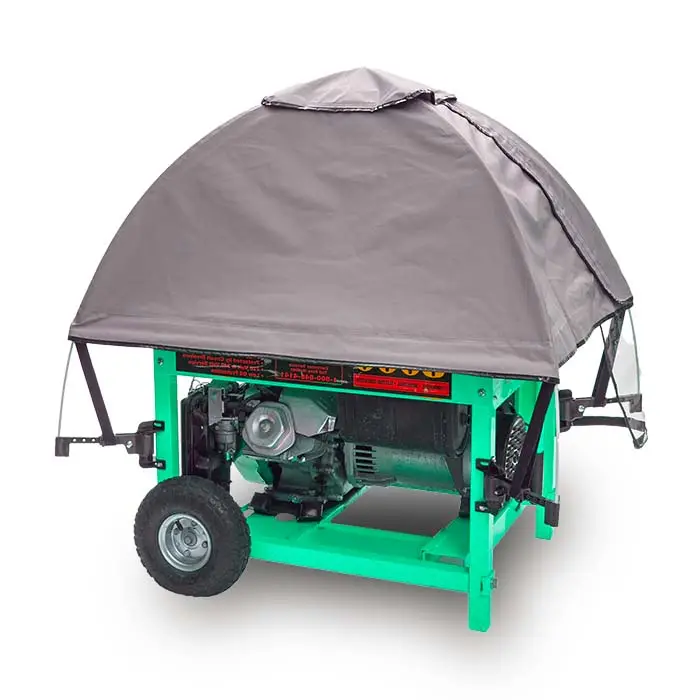
Regular Maintenance
Keep the Generator Clean
Regular cleaning is crucial for keeping your RV generator in good condition. Remove any dirt, dust, or debris that may accumulate on the unit. Use a soft brush or cloth to gently wipe down the surfaces, and avoid using abrasive cleaners that could damage the generator’s components.
Remove Debris
In addition to general cleaning, it is important to regularly remove any debris that may accumulate around the generator. Check for leaves, twigs, or other objects that could obstruct airflow or cause potential damage. Keeping the area around the generator clean will help prevent overheating and ensure optimal performance.
Clean or Replace Air Filters
Air filters play a crucial role in keeping your generator running smoothly. Over time, these filters can become clogged with dirt and debris, hindering airflow and reducing efficiency. Regularly clean or replace the air filters according to the manufacturer’s instructions to ensure proper ventilation and optimal performance.
Inspect and Clean Fuel System
The fuel system of your RV generator should be inspected regularly to prevent any clogs or blockages. Check fuel lines, filters, and tanks for any signs of damage or contamination. Clean or replace any faulty components to maintain proper fuel flow and prevent potential engine problems.
Check Oil Levels Regularly
Proper lubrication is essential for the longevity and performance of your RV generator. Regularly check the oil levels and top up as necessary. Follow the manufacturer’s recommendations for oil type and change intervals to keep the engine running smoothly.
Test and Replace Spark Plugs
Spark plugs are critical for igniting the fuel and air mixture in your RV generator’s engine. Over time, these plugs can become fouled or worn out, leading to poor performance and difficulty starting the generator. Test and clean or replace spark plugs regularly to ensure reliable operation.
Fuel Management
Use Quality Fuel
Using high-quality fuel is essential for the proper functioning of your RV generator. Look for fuel options that are specifically formulated for generators and contain minimal impurities. Avoid using stale or contaminated fuel, as it can lead to engine problems and decreased performance.
Add Fuel Stabilizer
To prevent fuel degradation and potential damage to your RV generator’s fuel system, consider adding a fuel stabilizer. This additive helps keep the fuel fresh and prevents the formation of varnish and deposits that can clog the carburetor and fuel lines. Follow the manufacturer’s instructions for proper usage and dosage.
Store the Generator with a Full Tank
When storing your RV generator for an extended period, it is recommended to store it with a full tank of fuel. This helps prevent moisture from accumulating inside the tank and potentially causing damage. Additionally, a full tank of fuel reduces the amount of air in the tank, which can help minimize the risk of corrosion.
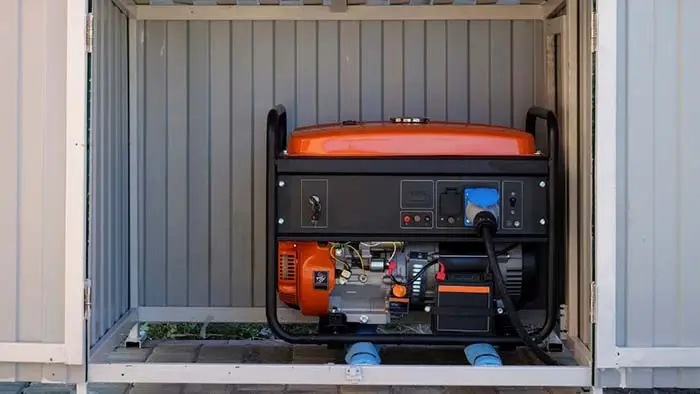
NOTE: We know the question “How to protect rv generator from weather?” is written in an awkward way, but it is the way this question is most often asked. So as to appear in the search results, we need to quote the question as it is asked. Cheers.
Electrical Connections
Protect Wiring Connections
Properly protecting the electrical connections of your RV generator is crucial for both safety and performance. Make sure all connections are properly insulated and protected from moisture. Consider using electrical tape, wire nuts, or weatherproof connectors to ensure secure and well-protected connections.
Use Weatherproof Outlets
To prevent water damage and potential electrical hazards, it is important to use weatherproof outlets for connecting electrical devices to your RV generator. These outlets are specifically designed to withstand outdoor conditions and provide a safe and reliable power source.
Safeguard Against Power Surges
Power surges can be detrimental to your RV generator and connected appliances. To protect against power surges, consider using a surge protector or installing a whole-house surge protection system. These devices help regulate and stabilize the electrical flow, preventing any damage caused by sudden surges in voltage.
Heat and Humidity Protection
Install Thermal and Moisture Barriers
Heat and humidity can have a significant impact on the performance and lifespan of your RV generator. Consider installing thermal and moisture barriers around the generator to protect it from extreme temperatures and excess moisture. These barriers can help maintain a more stable environment for the generator, reducing the risk of damage.
Use a Dehumidifier
Excess humidity can lead to condensation and moisture buildup, which can be detrimental to your RV generator. Using a dehumidifier in the generator compartment can help reduce humidity levels and prevent potential damage caused by moisture. Make sure to regularly empty and maintain the dehumidifier for optimal performance.
Insulate the Generator Compartment
Proper insulation can help regulate the temperature inside the generator compartment and provide additional protection against heat and cold. Insulate all walls and surfaces surrounding the generator, ensuring there are no gaps or openings where heat or cold air can penetrate. This will help maintain a more stable temperature and protect the generator from extreme weather conditions.

Battery Maintenance
Keep the Battery Charged
Proper battery maintenance is essential for the starting and operation of your RV generator. Regularly check the battery charge level and ensure it is properly maintained. Follow the manufacturer’s recommendations for charging intervals and use a battery charger or conditioner if necessary.
Disconnect the Battery in Extreme Weather
During periods of extreme weather, such as prolonged periods of cold or heat, it is advisable to disconnect the battery from the generator. This will help prevent any potential damage caused by extreme temperatures and ensure the longevity of the battery.
Check and Replace Faulty Batteries
Regularly check the battery for any signs of damage or deterioration. Look for bulges, leaks, or corrosion on the battery terminals. If you notice any issues, it is important to replace the battery as soon as possible to prevent any electrical or starting problems.
Cold Weather Precautions
Use Cold Weather Additives
Cold weather can affect the performance of your RV generator, especially if it is not equipped for low temperatures. Consider using cold weather additives specifically designed for generators to help improve cold starting and prevent fuel gelling. Follow the manufacturer’s instructions for proper usage and dosage.
Warm Up the Generator Regularly
During cold weather, it is important to warm up the generator regularly to prevent any potential damage. Start the generator and let it run for a few minutes to allow the engine to reach optimal operating temperature. This will help ensure smooth operation and prevent any cold-related issues.
Protect Against Freezing
To protect your RV generator from freezing temperatures, consider using insulation blankets or heaters specifically designed for generators. These accessories help provide additional protection and prevent any potential damage caused by freezing.
Maintain Adequate Fuel Levels
During cold weather, it is advisable to keep the fuel tank of your RV generator at least half full. This helps prevent any potential condensation from forming inside the tank and protects against fuel line freezing. Regularly monitor the fuel levels and refill as necessary.
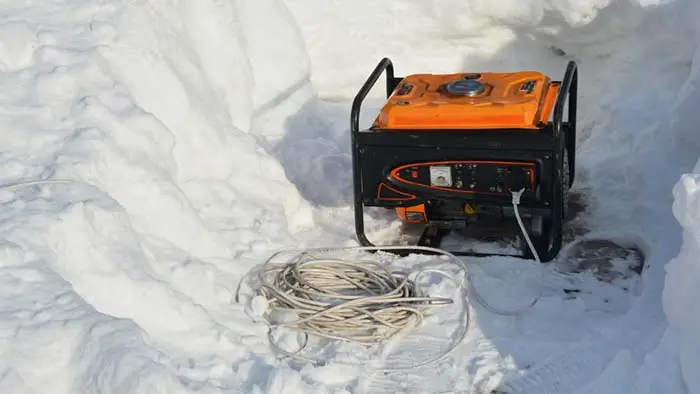
Pest and Critter Control
Seal Potential Entry Points
To prevent pests and critters from making a home in your RV generator, it is important to seal any potential entry points. Check for gaps, cracks, or openings in the generator compartment and surrounding areas. Use weatherstripping, caulking, or mesh screens to close off any entry points.
Use Pest Repellents
Consider using pest repellents to deter critters from venturing near your RV generator. There are various natural and commercial repellents available that can help keep pests at bay. Place these repellents strategically around the generator to discourage rodents and other pests from nesting or causing damage.
Regularly Check for Nests or Damage
Regularly inspect the generator compartment for any signs of nests, droppings, or chewed wires. Keep an eye out for any damage caused by pests and address it promptly. Taking preventive measures and addressing any potential issues early on will help maintain the functionality and lifespan of your RV generator.
Emergency Preparedness
Create an Emergency Plan
In case of severe weather events or power outages, having an emergency plan in place is essential. Create a plan that outlines what actions to take, where to seek shelter, and how to safely operate your RV generator during emergencies. Make sure all members of your household are aware of the plan and know how to respond accordingly.
Regularly Test Emergency Backup Systems
To ensure that your RV generator is ready to provide backup power during emergencies, it is important to test its functionality regularly. Schedule regular tests to verify that the generator starts and runs smoothly. Test the transfer switch or backup system to ensure proper functionality and seamless power transition during a utility outage.
Prepare for Severe Weather Events
In areas prone to severe weather events, it is important to take additional precautions to protect your RV generator. Consider investing in storm shutters or covers specifically designed to protect generators from high winds and flying debris. Secure any loose objects or structures near the generator that could potentially cause damage during storms.
By following these comprehensive steps, you can ensure the optimal performance and longevity of your RV generator. Protecting it from the weather, maintaining regular maintenance, managing fuel properly, and taking necessary precautions will help ensure that your generator is ready to provide reliable power whenever you need it.
Hope this was helpful, and thanks for reading.
Cheers!

